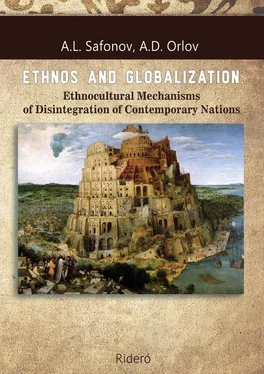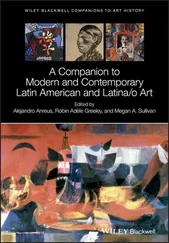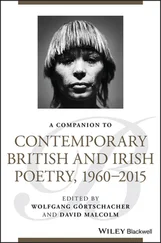Bauman,
12 12 Bauman, Z. Globalization: The Human Consequences. M.: Ves Mir Publishing House, 2004. – 188 p.
Kissinger
13 13 Kissinger, H. World Order. New York: Penguin Press, 2014.
, Martin and Schumann
14 14 Martin, H-P., Schumann, H. The Global Trap: Globalization and the Assault on Prosperity and Democracy. Translation / Zapadnya globalizatsii: ataka na protsvetanie i demokratiyu – M.: Al’pina, 2001. – 335 p.
, Stryker,
15 15 Stryker, R. Globalization and the Welfare State. M., 2004. Ч. Н. – p. 83—92.
Soros
16 16 Soros. G. On Globalization / O globalizatsii – M.: Praksis, 2004. – 276 p.
, Drucker,
17 17 Drucker, P. Post-Capitalist Society. M., 1999. – p. 67—100.
Butenko,
18 18 Butenko, A. P. Globalization: essence and contemporary problems / Sotsialno-Gumanitarnye Znaniya. 2002. №3. – p. 3—19.
Delyagin
19 19 Delyagin, M. G. Globalization. Global Crisis and “Closing Technologies” // Transnational Processes: XXI Century. M.: Sovremennaya Ekonomika i pravo, 2004. – p. 24—51.
, Rieger and Leibfried,
20 20 Rieger, E., Leibfried, S. Limits to Globalization: Welfare States and the World Economy. M., 2004. 4. II. p. 94—101.
Kara-Murza,
21 21 Kara-Murza, S. G. Globalization and crisis of enlightenment// Transnational Processes XXI Century. M., 2004. – p. 291—293.
Kagarlitsky,
22 22 Kagarlitsky, B. Y. Marxism. M.: ACT, 2005. – 462 p.
Podzigun,
23 23 Podzigun, I. M. Globalization as reality and problem / Philosophy. 2003. №1 – p. 5—16.
Pantin and Lapkin,
24 24 Pantin, V. I., Lapkin, V. V. Philosophy of historical forecast-making. Dubna: Feniks+, 2006. – 448 p.
Pozdnyakov,
25 25 Pozdnyakov, E. A. Nation, state, national interests // Voprosy ekonomiki 1994. №2 – p. 64—74.
Panarin,
26 26 Panarin, A. S. Seduction by Globalization. M., 2002. – 440 p.
etc.
The world-systems approach to globalization as a process of an increasingly multi-faceted and all-encompassing interaction of social actors and entities was used by Wallerstein, 27 27 Wallerstein, I. World-Systems Analysis: An Introduction. M.: Publishing House Territoriya Buduschego, 2006. – 248 p.
Braudel 28 28 Braudel, F. Grammaire des civilisations / Grammatika tsivilizatsij – M.: Ves’ mir, 2008. – 552 p.
, Amin, 29 29 Amin, Samir. The American Ideology. M., 2005. – p. 211—219.
, 30 30 Amin, Samir. Political dimension // Globalization of Defiance. Translation. M., 2004. – p. 265—286.
and others.
The synergistic approach, based on a somewhat incorrect extrapolation of the pattern in natural science of the emergence of ordered structures in non-equilibrium thermodynamic systems into the social form of being, was used in the works by Budanov, 31 31 Budanov, V. G. Methodology of synergy in post-nonclassical science and in education. PhD dissertation. M., 2007. – 56 p.
Kapitsa 32 32 Kapitsa, S. P. Model of the Earth’s population growth // Success of physics. 1995. 26. №3 / Model’ rosta naseleniya Zemli // Uspekhi fizich. Nauk. 1995. №3 – p. 111—128.
, Moiseyev, 33 33 Moiseyev, N.N.Human Being and Noosphere. M.: Nauka, 1990—p. 331
Podzigun, Panarin, 34 34 Panarin, A. S. Postmodernism and globalization: the project of liberation of property-owners from social and national responsibilities // Issues of Philosophy. 2003. №6 – p. 18—27.
Fuller, Shadzhe and others. An indisputable advantage of the synergistic approach is a general presentation of a problem in the creation and gradual sophistication of new structures and entities as a result of the dispersion of flows of energy and matter, which, when applied to social phenomena, may mean the development of divergent social processes.
The problem of the genesis of local social groups – ethnic groups and nations being the most important among them – has an evident interdisciplinary character and is studied under sociology, ethnology, social anthropology, conflictology and ethnopolitics, as well as within history-related disciplines.
The processes of ethnogenesis, nation-building and (looking at it through a broader lens) the building of social communities are studied within three schools of thought: constructivism, instrumentalism, and primordialism.
Primordialism is based on an evolutionary approach to sociogenesis and ethnogenesis. It looks at large groups that have existed for a long time (in particular, ethnic groups and nations) as a result of the long and continuous evolution of social communities that maintain their agency even in the course of deep social transformations of society. Two leading strategies in the ethnology of the nineteenth century, evolutionism and diffusionism, as well as the evolutionist approach in linguistics that allowed specification of the genesis of cultural and linguistic communities, established the basis for the primordialist approach.
Primordialism has two major branches, sociocultural (cultural primordialism) and sociobiological, the latter focusing on the genetic similarities of social groups – ethnic ones above all – as well as on the special social role of an instinctive underlying cause of social behaviour 35 35 Lorenz, Konrad. On Aggression. New York: Harcourt, Brace & World, 1966. Translated by Marjorie Kerr Wilson. Originally published in Austria under the title DAS SOGENANNTE BÖSE. Zur Naturgeschichte der Aggression. Viena: Dr. G. Borotha-Schoeler Verlag, 1963, p. 263.
The leading approach of modern primordialism is undoubtedly cultural primordialism, which views the genesis of large social groups (ethnic groups and nations) as a result of the evolution of social institutes and social relations. Cultural primordialism in Soviet and Russian science is represented by the works by Bromley, Kozlov, Arutyunov, Mnatsakyan, etc.
The modern sociobiological movement, having overcome the legacy of racial sociogenetic theories of the nineteenth and early twentieth centuries, is mainly represented by ethnogenetic 36 36 Dawkins, R. The Extended Phenotype: The Long Reach of the Gene. M: Astrel’, 2010. – 512 p.
, 37 37 Cavalli-Sforza, L. L. Genes, Peoples, and Languages. New York: North Point Press, 2000. – 267 р.
, 38 38 Gil-White F. J. How thick is blood? // Ethnic and Racial Studies. 1999. №22 (5) – P. 789—820.
, 39 39 Geertz, C. The Interpretation of Cultures. M.: Rosspen, 2004. – 128 p.
and neurogenetic concepts close to behaviourism. 40 40 Varela, F. Neurophenomenology: a methodological remedy for the hard problem // Journal of Consciousness Studies. 1996. №4 – P. 330—349.
However, despite its seeming attractiveness, the sociobiological variations of primordialism, at best, explain the formation of tribal communities in a simplified manner. They do not explain the genesis and the patterns of establishment and evolution of more developed and complicated communities, in which culture and politics play a systematically important role.
Constructivism believes the leading mechanism for sociogenesis to be a direct sociopolitical and socioeconomic construction of social communities from top to bottom by political elites, which is usually led through state institutions. Constructivists see modern ethnos as a sociocultural relic, an ideological phantom that the elites used to rule over the masses. 41 41 Anderson, B. Imagined Communities: Reflections on the Origin and Spread of Nationalism. M.: Kanon Press, 2001. – 286p.
, 42 42 Gellner, E. From similarity to ethnicity // Civilizations 1997. №5 – p. 41—54.
, 43 43 Berger, P., Luckmann, T. The social construction of reality. M.: Moscow Philosophy Fund: “Akademiya-Tsentr”, Isdatel’stvo “Medium”, 1995. – 334 p.
Читать дальше












